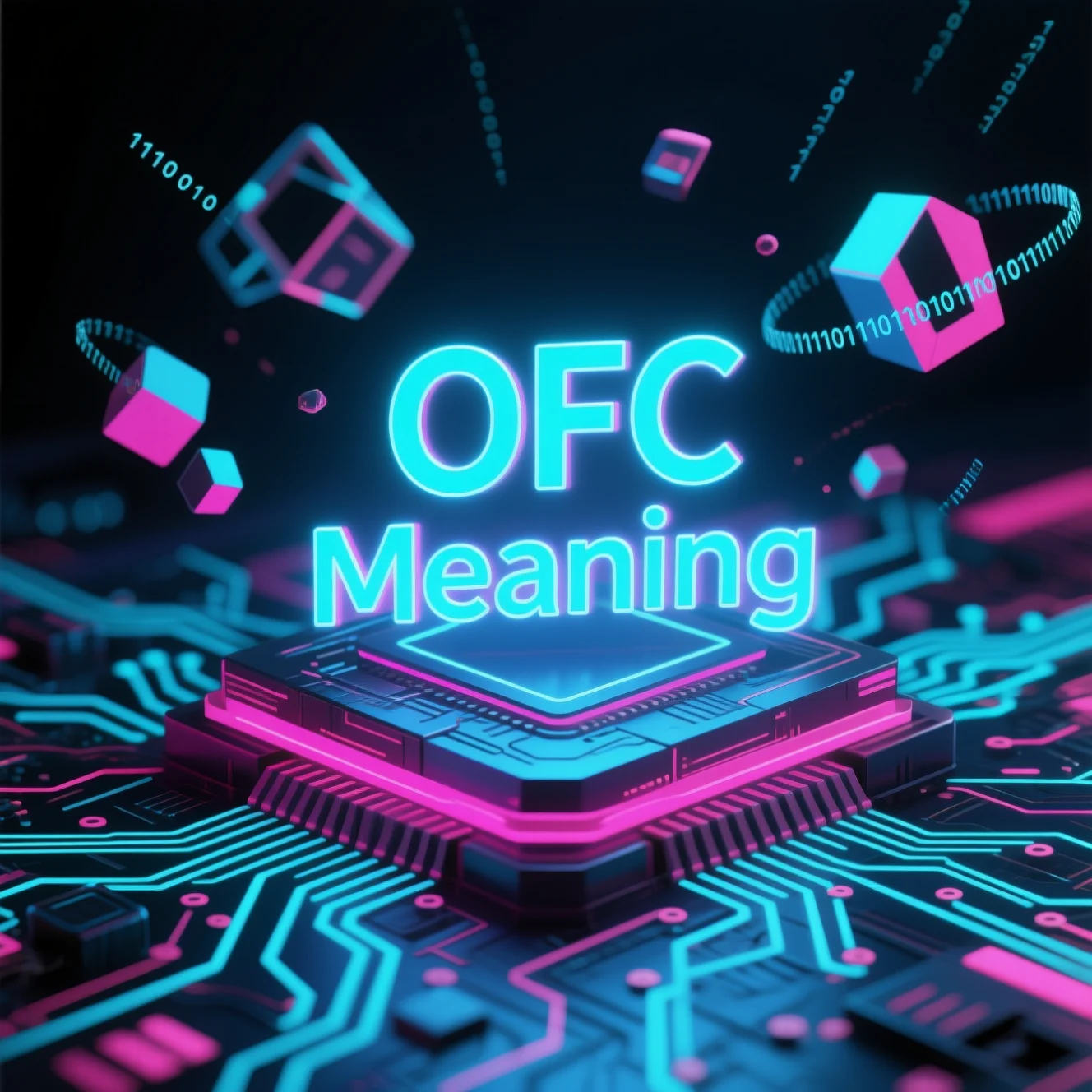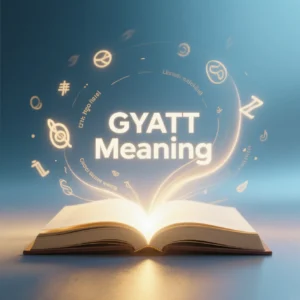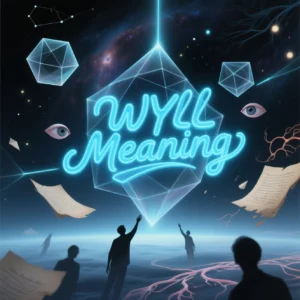In today’s fast-paced digital world, slang like OFC pops up everywhere—texts, social media, gaming chats, and even casual conversations. Short for “of course,” OFC is a quick way to agree or confirm something without typing out full sentences. It’s a staple in informal communication, especially among younger crowds on platforms like Twitter, TikTok, or Discord.
But why should you care? Understanding terms like OFC helps you keep up with evolving language trends, avoid miscommunication, and sound natural in conversations. Whether you’re texting a friend, gaming online, or scrolling through social media, knowing what OFC means and how to use it makes you fluent in modern slang.
This blog dives into its meaning, history, and usage, ensuring you’re ready to toss OFC into your chats with confidence.
Definition & Meaning
OFC stands for “of course.” It’s a shorthand way to express agreement, confirmation, or something obvious. People use it to save time while texting or posting online. It’s casual, friendly, and widely understood in digital spaces.
Examples of OFC in use:
- Texting:
Friend: “Are you coming to the party tonight?”
You: “OFC, wouldn’t miss it!” - Gaming:
Teammate: “Can you cover me in the next round?”
You: “OFC, I got you.” - Social Media:
Tweet: “Who’s watching the new superhero movie this weekend? 🦸♂️”
Reply: “OFC, already got my tickets!”
OFC conveys enthusiasm or certainty without needing extra words. It’s perfect for quick replies when the answer is obvious or you’re eager to agree. While it’s mostly informal, it’s versatile enough for many casual settings.
Background & History
The term OFC emerged with the rise of internet chat culture in the early 2000s. As texting and instant messaging grew, people started abbreviating common phrases to type faster. OFC, short for “of course,” became popular in forums, early social media like MySpace, and messaging apps like AIM. It’s part of a broader trend of acronyms like LOL (laughing out loud) and BRB (be right back).
Over time, OFC spread to platforms like Twitter, Reddit, and Discord, where brevity is key. Its use exploded with smartphones, as texting became a primary way to communicate. Today, it’s common in English-speaking online communities, especially among Gen Z and millennials. While its roots are in digital spaces, you might hear OFC in spoken conversations among friends or gamers, showing how internet slang crosses into real life.
Usage in Various Contexts
OFC is a chameleon, fitting into different situations with ease. Here’s how it’s used across contexts:
- Texting: Quick confirmations or enthusiastic agreements.
Friend: “You’re bringing snacks, right?”
You: “OFC, got chips and dip!” - Social Media: Adds a casual vibe to posts or replies.
Instagram Comment: “This sunset pic is fire! You took it?”
Reply: “OFC, snapped it on my hike!” - Gaming: Shows teamwork or agreement in fast-paced chats.
Teammate: “We rushing the base?”
You: “OFC, let’s do it!” - Casual Conversations: Used among friends for emphasis.
Friend: “You’re still into that band?”
You: “OFC, their new album slaps!”
OFC keeps things light and friendly. It’s less common in formal settings but shines in relaxed, informal exchanges.
Common Misconceptions & Clarifications
Some think OFC is just a lazy way to say “of course,” but it’s more about efficiency and tone. It’s not rude, but it can seem overly casual in serious contexts. For example, using OFC in a work email might make you sound unprofessional.
Another misconception is that OFC always means agreement. Sometimes, it’s used sarcastically:
Boss: “You finished the report, right?”
You: “OFC…” (when you haven’t).
There’s no major offensive meaning tied to OFC, but context matters. In sensitive discussions, it might come off as flippant. Always consider the tone and setting before using it.
Similar Terms & Alternatives
OFC isn’t the only way to say “of course.” Here are related terms:
- Obvi: Short for “obviously,” used similarly.
- Duh: Playful way to say something’s obvious.
- Yup/Yeah: Simple agreement, less emphatic.
- Totally: Shows strong agreement, like OFC.
Comparison Table:
| Term | Meaning | Tone | Example |
|---|---|---|---|
| OFC | Of course | Casual, confident | “OFC, I’m in!” |
| Obvi | Obviously | Playful, cheeky | “Obvi, it’s the best show!” |
| Duh | Obviously | Sarcastic, fun | “Duh, who wouldn’t go?” |
| Yup | Yes | Neutral, simple | “Yup, I’ll be there.” |
Each term fits slightly different vibes, but OFC is the most versatile for quick, enthusiastic replies.
How to Respond to OFC
Responding to OFC depends on the vibe you’re going for:
- Casual: Keep it chill.
Friend: “You’re coming, OFC?”
You: “Yup, see you there!” - Funny: Add humor.
Friend: “OFC you’re bringing pizza!”
You: “OFC, I’m the pizza king!” - Professional: Avoid OFC in formal replies, but if it’s used, stay polite.
Colleague: “You’ll join the meeting, OFC?”
You: “Yes, I’ll be there.” - Privacy-Conscious: Deflect if you’re unsure.
Stranger: “You’re at the event, OFC?”
You: “Maybe, who’s this?”
Match the energy of the OFC to keep the conversation flowing naturally.
Regional or Cultural Differences
OFC is primarily used in English-speaking countries like the US, UK, Canada, and Australia. It’s less common in non-English-speaking regions unless people are fluent in English internet slang. some cultures, similar shorthand exists:
- Spanish: “Obvio” or “claro” for “obviously” or “of course.”
- French: “Évid” for “évident” (obvious).
In the UK, OFC is sometimes replaced with “natch” (naturally). In gaming communities worldwide, OFC is universal due to English-dominated platforms like Discord. Cultural context matters—OFC might feel too informal in conservative settings in some countries.
Comparison with Similar Terms
Here’s a deeper look at OFC vs. similar terms:
- OFC vs. Obvi: OFC is more about agreement; Obvi emphasizes something obvious.
- OFC vs. Duh: Duh can sound mocking; OFC is friendlier.
- OFC vs. Yup: Yup is neutral; OFC adds enthusiasm.
Comparison List:
- OFC: Confident, versatile, widely used online.
- Obvi: Playful, often sarcastic, less common in serious chats.
- Duh: Informal, can seem rude if misused.
- Yup: Simple, less emphatic than OFC.
OFC stands out for its balance of enthusiasm and brevity.
Usage in Online Communities & Dating Apps
On Tinder, OFC adds a flirty, confident vibe:
Match: “You’re into hiking?”
You: “OFC, let’s hit a trail together!”
On Twitter, it’s used for quick replies or humor:
Tweet: “Who’s streaming the game tonight?”
Reply: “OFC, catch me live!”
In gaming communities like Discord, OFC signals teamwork:
Player: “You got my back?”
You: “OFC, let’s win this!”
Tips: Match the platform’s tone. On Tinder, keep it playful. On Twitter, be witty. In gaming, stay concise to keep up with fast chats.
Hidden or Offensive Meanings
OFC has no widely recognized offensive meanings. However, tone matters. Using it sarcastically in a serious context can seem dismissive:
Friend: “Can you help me with this?”
You: “OFC…” (implying you won’t).
In rare cases, OFC might be misread as another acronym, but this is uncommon. Always ensure the context is clear to avoid misunderstandings.
Suitability for Professional Communication
OFC is not ideal for professional settings. It’s too casual for emails or formal meetings. Instead, use full phrases like “of course” or “certainly.”
Example:
Boss: “Can you finish this by Friday?”
You: “Certainly, I’ll have it done.” (Not “OFC.”)
If a colleague uses OFC, respond politely but avoid mirroring it in formal exchanges. Stick to professional alternatives to maintain a polished tone.
FAQs
- What does OFC mean?
OFC stands for “of course,” used to confirm or agree quickly. - Is OFC rude?
No, but it can seem flippant in serious or formal settings. - Where is OFC used most?
Texting, social media, and gaming communities. - Can I use OFC in professional emails?
Avoid it; use “of course” or “certainly” instead. - Is OFC universal?
It’s mainly used in English-speaking online spaces. - Are there similar terms to OFC?
Yes, like “obvi,” “duh,” or “yup.” - Can OFC be sarcastic?
Yes, depending on context, like saying “OFC” when you disagree.
Conclusion
OFC, meaning “of course,” is a versatile slang term that adds a casual, confident vibe to texts, social media, and gaming chats. Born in the early days of internet messaging, it’s now a staple in digital communication. While perfect for informal settings, it’s best avoided in professional contexts. Understanding OFC’s nuances—its tone, context, and alternatives—helps you use it effectively and avoid missteps. Whether you’re confirming plans with friends or hyping up a gaming squad, OFC keeps things quick and fun. Embrace it, but always mind the setting!



